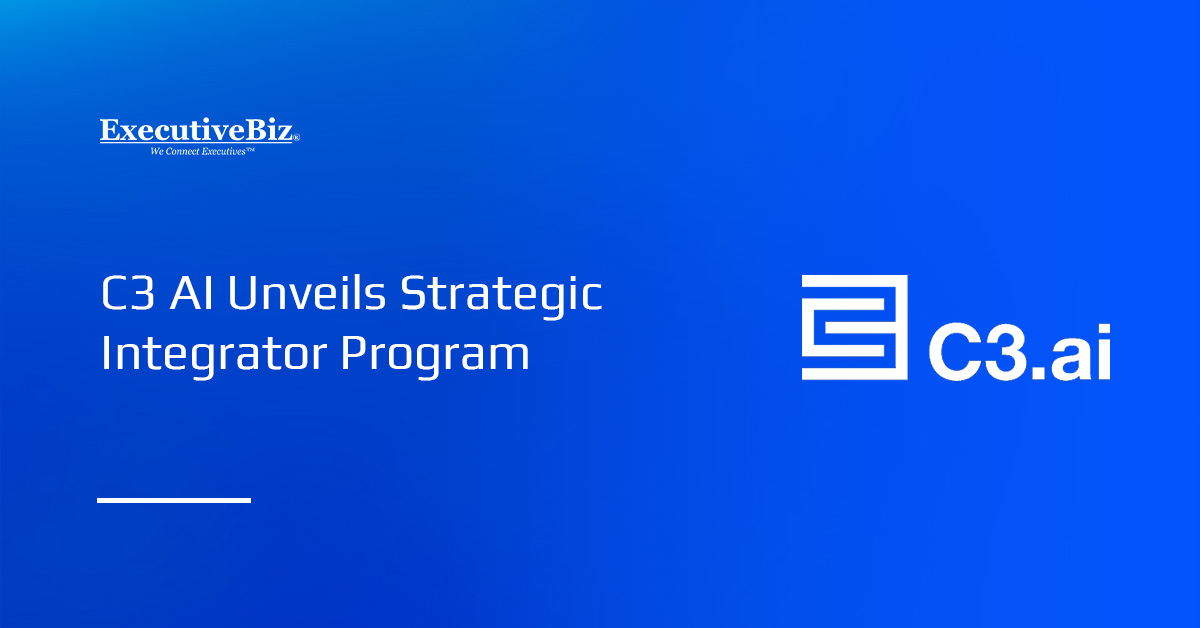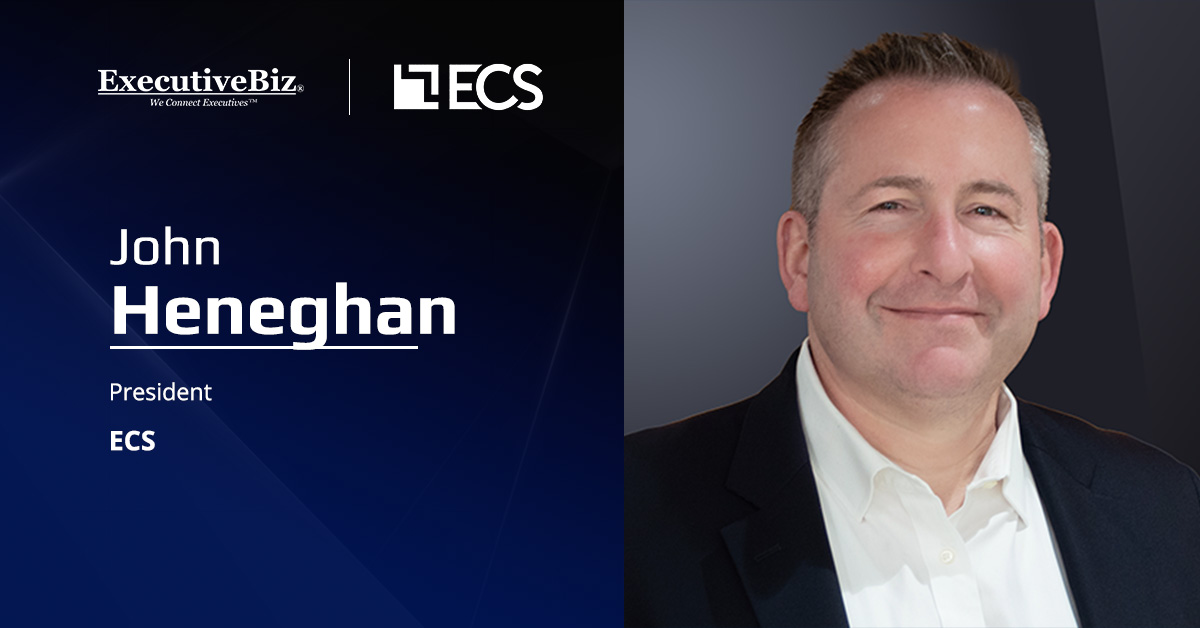Artificial intelligence is undoubtedly the most critical technology shaping the federal sector right now. Former U.S. Air Force and Space Force Chief Software Officer Nicolas Chaillan knew this, which is why he founded Ask Sage in 2023 upon exiting his government roles. The company has developed a generative AI platform created in collaboration with Microsoft for government and regulated industries.
Christopher Gordon, a 25-year public sector exec, joined Ask Sage as vice president of sales in May. In this role, he’s charged with driving revenue across all sectors and has already made an impact in scaling the organization.
We had the pleasure of connecting with Gordon for a Spotlight interview and learned about the wide-ranging applications of AI, how it plays well with other emerging technologies and the various compliance journeys of Ask Sage.
If you want an in-depth discussion of how genAI is impacting defense missions, attend the generative AI panel at the Potomac Officers Club’s 2025 Navy Summit on Aug. 26. The conversation will feature Navy Chief Technology Officer Justin Fanelli and Chief Data and AI Officer Stuart Wagner. Don’t miss this riveting GovCon industry event!
ExecutiveBiz: Tell me about the current state of the artificial intelligence market. Where are you seeing new opportunities in AI, and where do you think the market is heading?
Christopher Gordon: The AI market is evolving at an incredible pace, especially in the federal space where AI has already moved from being a buzzword to a critical tool for solving real-world challenges across government agencies.
The current state of the market is defined by rapid adoption and increased investment. Federal agencies are leveraging AI for everything from automating routine tasks to enhancing decision-making. For example, the Department of Veterans Affairs is using AI to improve healthcare delivery, while the Department of Defense is deploying AI for predictive analytics and cybersecurity. The National AI Initiative Act has been a major driver, ensuring that the U.S. remains a leader in AI innovation.
As for opportunities, there are several exciting areas where AI is making a big impact. Cybersecurity is one of the most critical. With the rise in cyber threats, AI is being used to detect and respond to attacks in real time, helping agencies protect sensitive data and infrastructure.
Another area is predictive maintenance, where AI is optimizing equipment performance in sectors like defense and transportation, saving costs and improving reliability.
We’re also seeing AI revolutionize federal healthcare. From personalized medicine to predictive analytics, AI is helping agencies like the VA deliver better outcomes for patients.
And let’s not forget climate and energy. AI is being used to model climate change, optimize energy grids, and support sustainability efforts.
We’re also seeing a push for AI-driven automation, where robotic process automation is streamlining workflows across agencies. And the intersection of AI and quantum computing is opening doors to solving complex problems that were previously out of reach.
The AI market is thriving, and many federal agencies are charging ahead in adopting innovative solutions. The opportunities are vast and the future is focused on making AI more transparent, scalable and impactful. It’s an exciting time to be part of this space!
EBiz: What qualities define a trustworthy AI system and what are some steps companies can take to validate their AI systems?
Gordon: Trustworthy AI is a critical topic, especially as we see AI systems being integrated into high-stakes environments like the federal government. To build trust, there are several key qualities that define a reliable AI system.
First, transparency is essential. AI systems must provide clear explanations of how decisions are made. This is particularly important in the federal space, where decisions can impact millions of people. Stakeholders need to understand the ‘why’ behind an AI’s recommendation or action.
Second, fairness is non-negotiable. AI systems must be free from bias and ensure equitable outcomes for all users. This means addressing biases in both the data and the algorithms. For example, if an AI system is used in hiring or loan approvals, it must not disadvantage certain groups unfairly.
Third, accountability is key. Developers and operators must take responsibility for the actions of their AI systems. This includes ensuring that the system performs as intended and addressing any unintended consequences.
Fourth, robustness is critical. AI systems must be resilient to adversarial attacks and function reliably under various conditions. In the federal space, where systems may face cyber threats or operate in unpredictable environments, robustness is a must-have.
Finally, privacy and security are foundational. AI systems must protect sensitive data and comply with privacy regulations like FedRAMP or the AI Bill of Rights. This is especially important when dealing with classified or personal information.
Now, when it comes to validating AI systems, there are concrete steps organizations can take. For instance, conducting bias audits regularly and using explainability tools is essential to identify and mitigate any biases in the data or algorithms and make AI decisions interpretable, which ties back to the need for transparency.
Additionally, security testing such as penetration testing helps identify vulnerabilities and ensures the system is resilient to threats.
In summary, building trustworthy AI is about more than just technical excellence, it’s about aligning the system with ethical principles, ensuring fairness and validating its performance rigorously. By focusing on these qualities and steps, we can create AI systems that are not only effective but also deserving of public trust.
EBiz: What are some other important emerging technologies in the federal space that complement and work well with AI?
Gordon: That’s a great question! AI is incredibly powerful on its own, but its true potential is unlocked when it’s paired with other emerging technologies. In the federal space, we’re seeing several technologies that complement AI and amplify its impact.
First, 5G networks are a game-changer. The speed and low latency of 5G enable real-time AI applications, which is critical for things like autonomous systems, disaster response and even battlefield operations. With 5G, AI can process and act on data faster than ever before, even in remote or high-demand environments.
Second, edge computing is becoming increasingly important. Instead of sending all data to a centralized server, edge computing allows AI to process data closer to where it’s generated, whether that’s a drone, a sensor or a field device. This reduces latency and improves efficiency, which is especially valuable in disconnected or low-connectivity environments, like military operations or disaster zones.
Another key technology, quantum computing, is also on the horizon. While it’s still in its early stages, quantum computing has the potential to solve complex optimization problems that are beyond the reach of classical computers. When combined with AI, it could revolutionize areas like cryptography, logistics and even climate modeling.
Finally, we can’t overlook the Internet of Things. IoT devices generate massive amounts of data, and AI is the key to making sense of it all. In the federal space, IoT combined with AI can improve everything from smart city infrastructure to predictive maintenance for military equipment.
So, when we think about AI in the federal space, it’s not just about the AI itself, it’s about how it integrates with these complementary technologies to create smarter, faster, and more secure systems. Together, they’re shaping the future of federal operations and service delivery.
EBiz: Where is Ask Sage in its compliance journey with the major federal compliance requirements?
Gordon: That’s an important question, especially given how critical compliance is in the federal space. Ask Sage has made significant strides in its compliance journey, and we’re committed to meeting the highest standards required by federal agencies.
To start, Ask Sage has already achieved FedRAMP/FedRAMP High status, which is a major milestone. This demonstrates that our platform meets stringent security and operational requirements for cloud services. It’s a foundational step that shows we’re serious about protecting federal data and ensuring trust.
We’ve also obtained Impact Level 4, 5 and 6 authorization. This is particularly important for agencies that need secure solutions for sensitive and classified data. Achieving IL4 compliance ensures that our platform is robust enough to meet the needs of federal clients operating in regulated environments, while IL5 and IL6 certifications enable us to support classified and mission-critical workloads, which is essential for our customers in the Department of Defense and intelligence organizations. Achieving these certifications required rigorous testing and validation and we are fully committed to meeting these standards now and into the future.
Beyond certifications, we’re also focused on continuous monitoring. Compliance isn’t a one-time achievement, it’s an ongoing process. We’ve implemented systems to ensure we stay ahead of evolving federal requirements and maintain the integrity of our platform.






